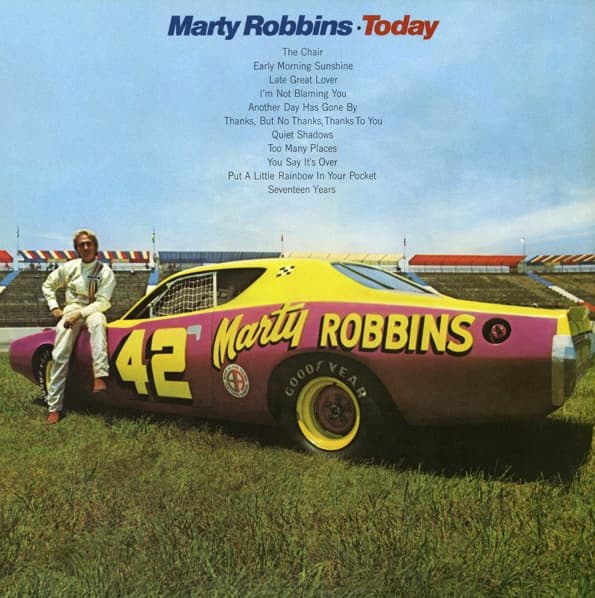
The Haunting Melody of a Life Lived on the Road
“Too Many Places” is a poignant ballad about a weary wanderer who realizes too late that he’s been looking for home in all the wrong places.
The year was 1972, a time when the echoes of the ’60s were still ringing, but a new, more reflective kind of country music was taking hold. It was in this moment that the legendary Marty Robbins, a man whose voice could paint landscapes of the Wild West and the ache of a broken heart with equal command, released the song “Too Many Places.” Nestled on his album Today, a record that showcased his versatility, this track quietly charted a course of its own. While it didn’t reach the towering heights of his signature epics like “El Paso,” it found its place on the charts, peaking at number 36 on the Billboard Hot Country Singles chart. This was a modest but significant success, a testament to the song’s profound, if understated, emotional power.
This isn’t a song for the young and restless. This is a song for those who have lived long enough to know the weight of their own history. It’s for those moments when you’re driving down a long, lonely highway, the sun setting behind you, and you suddenly feel the ghosts of all the roads you’ve taken. The story behind “Too Many Places” is a universal one, a narrative that transcends the specific details of a country ballad. It is the story of a man who has always been in motion. He’s a drifter not by choice, perhaps, but by nature, or by a past wound that never healed. He’s seen the world, met countless people, and experienced a thousand different lives, but he has never stayed long enough to build a home.
The meaning of the song is carried in every line, a crushing realization delivered with a quiet, devastating finality. The narrator is no longer celebrating his freedom; he is lamenting his rootlessness. He’s found a woman, a place, a moment where he finally wants to drop anchor, to give up the rambling life. But he’s come to this conclusion too late. His past, represented by the “too many places” he’s been, has left an indelible mark on him and on her. It’s a sad kind of irony—the very journey that led him to her has also made him unworthy of her, or perhaps, too damaged to be the man she needs. The weariness in Marty Robbins’s voice isn’t an act; it’s the authentic sound of a soul coming to grips with a life of regret.
Listening to “Too Many Places” today is like looking at an old photograph from a time before everything changed. It pulls at memories of a different era—the crackle of a vinyl record, the warm glow of a car radio at night, the way a song could make you feel like the songwriter was speaking directly to your own experiences. The song’s beauty lies in its simplicity. There are no soaring crescendos or dramatic gunfights, just a gentle, shuffling rhythm and a melody that feels like a heavy sigh. It’s a song that understands the human condition at its core: the desire for connection, the fear of commitment, and the heartbreak of realizing that sometimes, the choices we made long ago close the door on the very thing we’ve always wanted. It is a timeless piece from a master storyteller, a quiet hymn to the regret that lives in all of us.